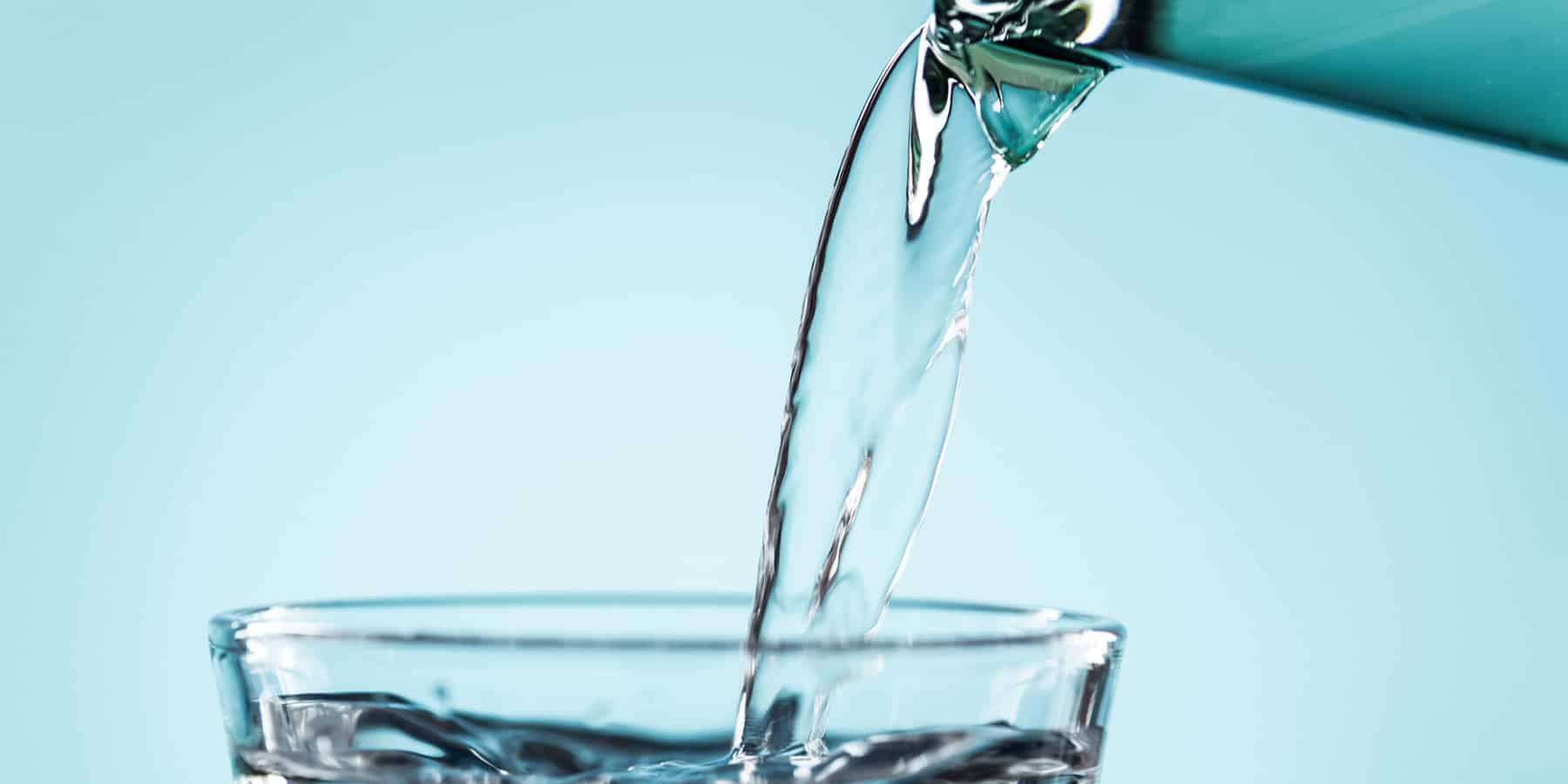A bitter taste in drinking water can be caused by the presence of metals, a high ph, or another adulterant such as medication/pesticides/industrial chemicals. While the discerning palate may be able to taste the difference between them, it is essential to get your water professionally tested to ensure that it is safe to drink; this is especially true if something tastes unusual with a metallic or bitter taste.
Water can be wonderfully complex, with different springs or wells having contrasting tastes. We explore these different tastes in our taste series.
What causes bitter tasting water?
- High levels of iron in your water is a common cause of a metallic/bitter taste in your water supply. However, having iron in your tap water may be caused by a few different sources. You may have iron naturally occurring in your drinking water (ex: well water with high iron), but it is also likely that you may have acidic water that is much more likely to leech metals from your copper, iron, or lead pipes.- Presence of other metals. While each metal has a slightly different taste, it is easy to confuse them. You may have manganese, magnesium, lead, zinc, or copper. Depending on the metal involved, you may need to filter your water before it is safe for consumption. It would help if you got your pipes checked to ensure they are not lead, although lead will have a slightly sweeter taste than other metals.- A low pH level. Low pH levels can make water taste bitter on its own, but because the water is more acidic, it is much more likely to leech metals off of any pipes that it goes through.- A high pH level. Bitter can be such a broad term, and while a low pH level may have more bitter levels, a high or basic pH level can naturally taste bitter on its own.- Older pipes. Brass, copper, or galvanized steel pipes can slowly degrade over time, allowing minerals and metals to seep into your water. This can happen in the pipes within your home, or if your city has an aging infrastructure, it can occur before it reaches your home. I find older high-rise apartment buildings to be the worst culprit of this as the water has much longer to marinate in old iron or copper pipes, making the tap water taste worse.- Brown or red water. This is likely caused by your pipes having a leak or that they have become polluted with rust. While small amounts of rust aren't specifically harmful to your health it is something you would want dealt with.- Pesticides/Medication/Adulterant. Many things that are unsafe for human consumption will have a bitterant added as a deterrent for human consumption.
How to Fix Bitter Tasting Tap Water
Sometimes, a bitter taste may be something you want to remove from your water for taste reasons or because leaving high concentrations of minerals in your water may damage your pipes over time. Of course, it is best to have your water tested to find out what precisely you are dealing with, but once that is done, you can move forward with the best water filtration system for your needs.
Methods to Remove Bitter Taste From Water
There are many methods of removing metals from your water; some require a whole home system, while others are treatments that can fix a specific cause of metal in your water. First, you'll want to test your water and consult an expert to see which water filtration system works best for your situation.
Reverse Osmosis
Works by pushing water through a membrane that stops many harmful contaminants. Reverse osmosis is quite effective at improving water quality and will remove many dissolved solids and other chemical contaminants. It works to remove most metals including copper, lead, magnesium, manganese, and iron.
Distillation
Not my favourite form of water purification as it removes the most' taste' from the water; however it is the safest. Distilled water is made by boiling water into steam; this leaves the contaminants and dissolved minerals behind. With proper usage, distillation will remove 100% of minerals from the water, however it will not remove things with a lower boiling point than water, such as chlorine (however, chlorine will naturally off-gas). This makes distillation a great option for removing metals. You can also add minerals back into your water after distillation to improve the tap water taste.
Activated Charcoal
Suppose you're looking to improve the taste of your water while leaving behind some of the healthier minerals such as magnesium, potassium, sodium, and calcium. In that case, an activated charcoal filter might be right for you. While it will still leave behind some unwanted minerals, it can vastly reduce any that might cause health problems. For example, a properly maintained activated charcoal filter can remove many metals up to a 90% level. However it won't be able to completely remove the metals, so if you have a dangerous metal such as lead in your water system you will want something more robust.
Water Softener
A water softener can remove small amounts of metal from your water, however if you are experiencing a large amount of metal you will want to use another method of water treatment or add an iron filter to your water softener.
Iron/Rust Filter
An iron filter is a replaceable cartridge that removes iron from your water supply.
Rust Removal
A rust remover is a treatment that can be done on your water softener. Follow the instructions of a rust remover like Rust Out. This will help in short term, but you should still try to find out what is causing rust in your system.
Flushing Your Pipes
This is especially useful to remove rust from your iron pipes in a home or pipe that hasn't been used very often. It is the simplest solution, however it doesn't fix the root cause of the problem. If you water tastes bitter or metallic after flushing the pipes you will need to address the root of the problem.
Note: While an unpleasant metallic taste is something that you should always have assessed for health reasons, there are naturally occurring bitter-tasting waters that are highly sought after. For example, this ROI Mineral Water is one of the most expensive waters in the world and is incredibly rich in magnesium causing it to have a bitter taste. It has a total dissolved solids of 7481 mg/l which is 20-50X the typical TDS of tap water.
Explore the taste of water with The Taste Series
The taste series is a series of posts where we explore the different tastes of water.
- The Taste SeriesThe Taste Series – Why does my water taste ______? Water can have many different underlying tastes; some [...]
- Why does Cold Water Taste Better?Ever thought about why we drink cold water or prefer ice-cold water? At one point, you may have [...]
- Why does my water taste bad?If your tap water tastes bad it is likely from a contaminant. If you can narrow down what [...]
- Why does my water taste bitter?A bitter taste in drinking water can be caused by the presence of metals, a high ph, or [...]
- Why does my water taste funny?If your tap water starts tasting funny then it is best to get to the root cause of [...]
- Why does my water taste like blood?There are a number of different reasons why your water may taste like blood. A high iron content [...]
- Why does my water taste like chemicals?Usually, your tap water should taste or smell relatively neutral. However, if there is a new or existing [...]
- Why does my water taste like chlorine?The smell and taste of chlorine or a bleach-like smell in tap water is usually a residual amount [...]
- Why does my water taste like metal?A metallic taste in drinking water can be caused by the presence of one or a combination of [...]
- Why does my water taste like plastic?Although it most commonly occurs when you let water sit in a plastic bottle for too long, plastic [...]
- Why does my water taste like soap?A soapy taste can be caused by many different contaminants on the way into your glass. So in [...]
- Why does my water taste salty?When you have a glass of salty-tasting water it's automatic to assume that it just has a little [...]
- Why does my water taste sour?A sour taste is most commonly caused by acidic water. Water with a lower pH level will begin [...]
- Why does my water taste sweet?A sweet taste in your drinking water can be caused by various contaminants, some of which are harmless [...]
- Why is my tap water smelly?Pure water is supposed to be odourless, colourless, tasteless, and neutral. However, tap water is not pure; it [...]



